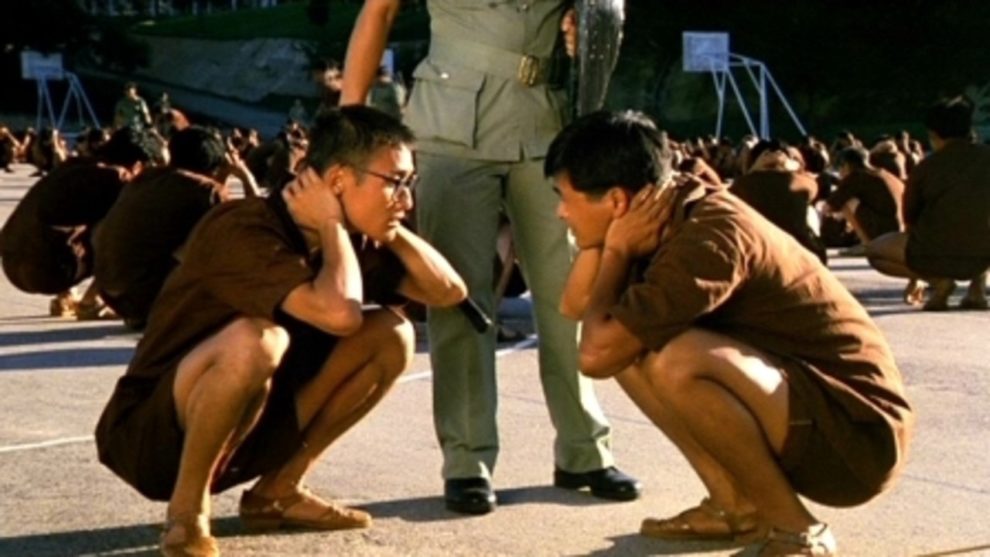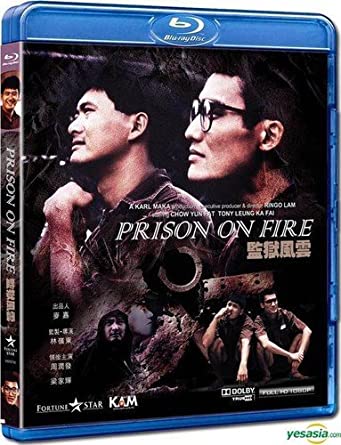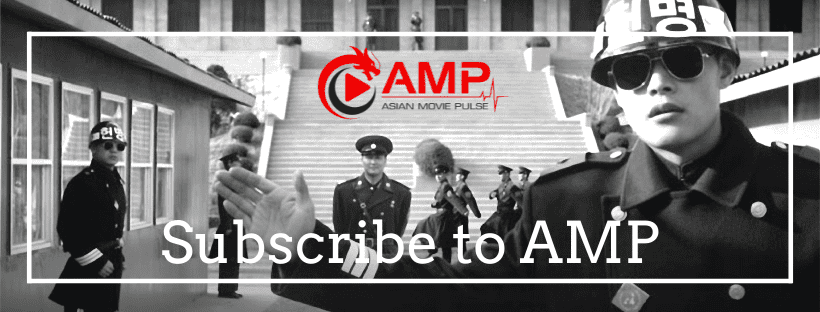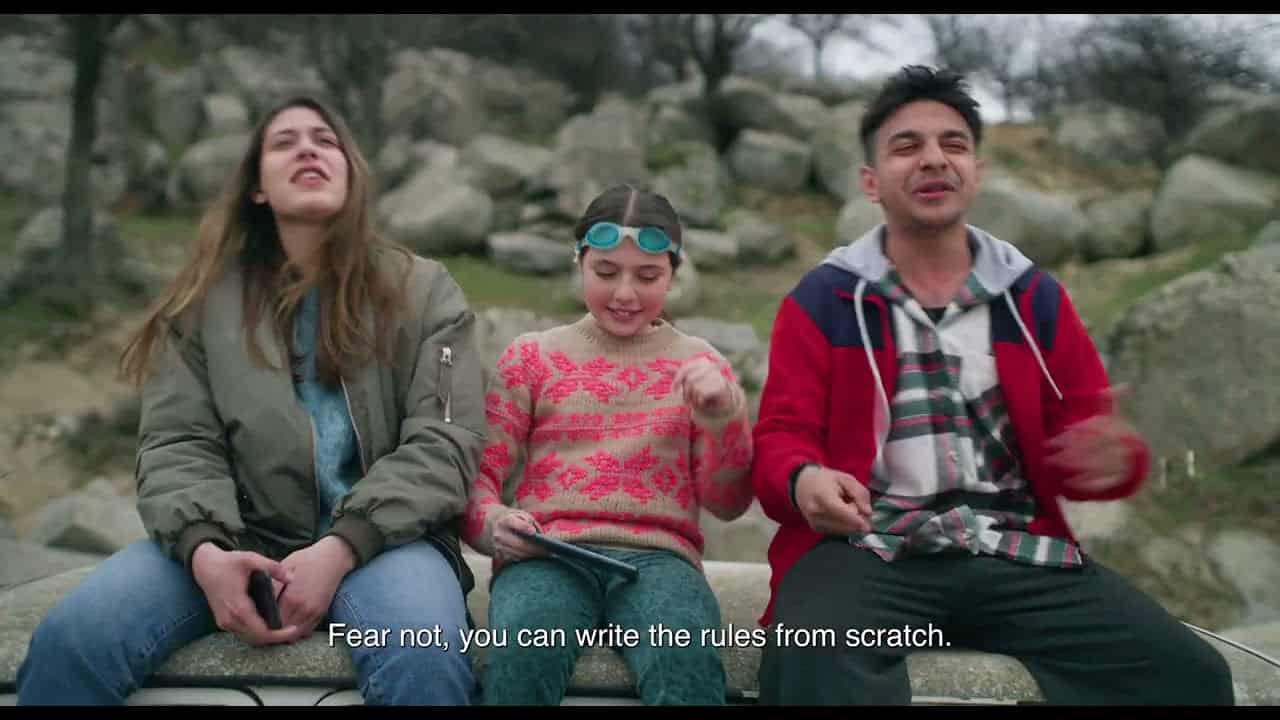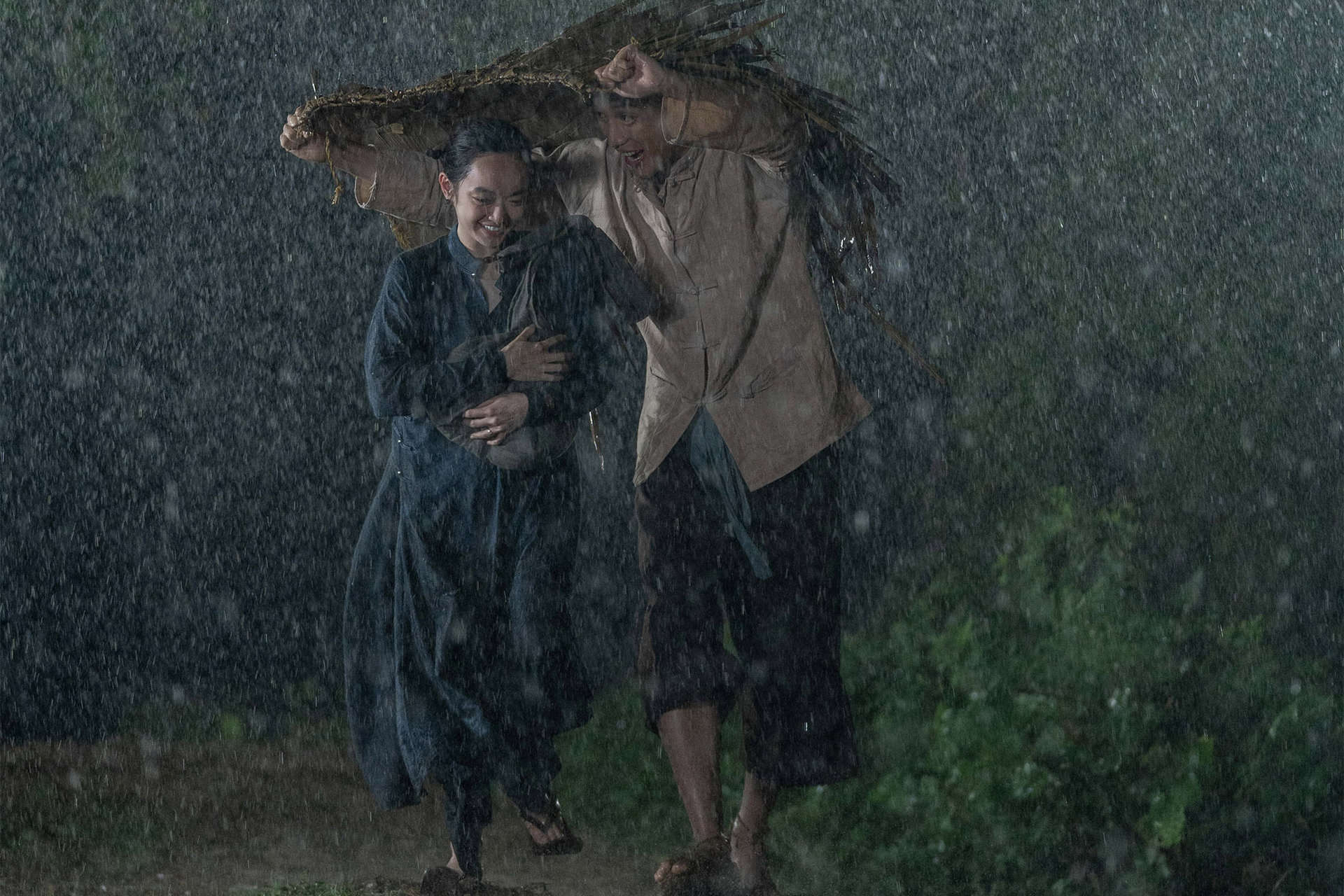Second entry in Ringo Lam's “on Fire” quadrilogy, “Prison on Fire” was Hong Kong's second highest grossing film in the year of its release, and another stepping stone in the path Ringo Lam and Chow Yun-fat were taking towards the top of HK cinema.
Buy This Title
on Amazon by clicking on the image below
Yiu is a young advertising executive in Hong Kong. One night, during an attack his father suffers from thugs, he ends up pushing one of them in front of a passing bus, in a series of events that end up with him sentenced to spend three years in prison. In an environment filled with sadistic or illogical employees (head guard Scarface and the prison doctor respectively), bullies and triad members, Yiu looks like a fish outside the water. Thankfully, Mad Dog, a cheerful inmate who knows the ins and outs of prison, takes him under his wing, trying to protect him from everyone. However, as Scarface plays the various prison gangs against each other, mainly Bill and Micky, Yiu finds himself in the middle of violence, while a hunger strike to protest the rising prices inside the prison adds even more fuel to the fire.
Ringo Lam directs a film that unfolds in a number of levels. There is a sociopolitical level about how the correctional system works, with the lower officers essentially running the show in their rather corrupt way, and the higher ups pretending that they do not see what is happening, a comment that is presented here a number of times. Furthermore, this is also a story about male friendship and dedication, with the way the relationship between Yiu and Mad Dog unfolds, with both eventually sacrificing themselves for the other, being one of the most appealing elements here. Lastly, and through this friendship and the aforementioned circumstances in prison, the way the two men are forced to transform into rather violent human beings in order to survive concludes this quite appealing narrative.
At the same time, and despite the general picture, the movie also thrives on its individual scenes, and particularly the action sequences, which highlight Lam's ability to direct many people at the same time as much as the excellent combination of drama and brutality that permeates all of them. Particularly after a point, when Lam places the minor elements of comedy of the beginning to the background and instead focuses on the aforementioned combination, the movie truly picks up, until the rather impactful ending. The one in the courtyard, which also serves as the “introduction” of Scarface, the one where Yiu ends up losing it and most of all, the one where Mad Dog erupts are truly wondrous to watch, essentially elevating the movie much above some script issues and the occasional clowning by Chow Yun Fat. This aspect also benefits the most from Huang Wen-Yun's cinematography captures the claustrophobic setting of the prison with realism and artistry, and the frantic pace, as implemented by the editing.
And talking about Chow, as soon as the drama/violence element becomes the central ones, he shows what he is capable of, giving a truly spectacular performance that has him taking care of Yiu while being violent towards all others, but most of all Micky and Scarface. The antithesis with Tony Leung Ka-fai's Yiu is another of the great traits of the movie, that highlights both the acting and the narrative in the best fashion. As such, the downward spiral of both towards madness is a testament to their performances, and yet another trait of the movie.

“Prison on Fire” is a true classic of HK action cinema, and a movie that has stood the test of time in the best fashion, remaining a must-watch until today.


